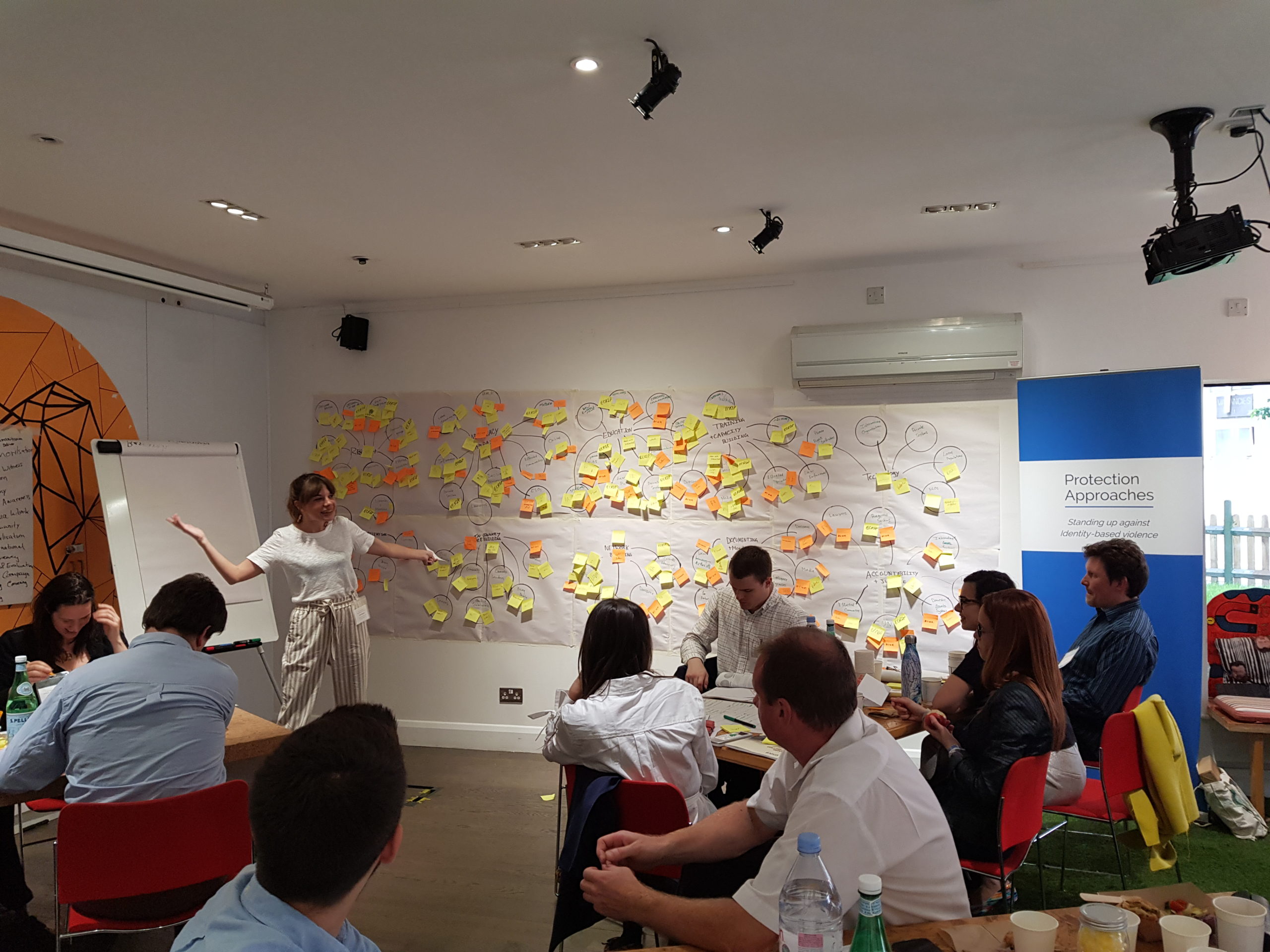This post appears in the Special Issue on Countering Hate and Violent Extremism of the Peace Science Digest in collaboration with Thought Partnerships.
Protection Approaches wants to change the way the world thinks about identity-based violence and how we respond to and prevent it. Protection Approaches believes that a spectrum of identity-based harms—from hate crimes to violent extremism to mass atrocities, all animated by the deadly idea that some lives are more valuable than others—should be seen as a shared global crisis. We are working to build a world where everyone accepts and respects each other, regardless of identity. We believe that accomplishing this mission is not only possible but probable, and we are dedicated to doing the long-term, difficult work necessary to help make it a reality.
We are currently implementing programs that support those affected by identity-based violence, challenge those responsible for it, and encourage those in a position to prevent it. We know that no society is immune to identity-based violence and that the collective responsibility to help protect people from such discrimination spans whole societies.
Our Stronger Communities project in the U.K. works to engage, support, and encourage local leaders—particularly young people—to play a central role in identifying, challenging, and preventing all forms of institutionalized prejudice and inequality. In doing so, we broker relationships that can help facilitate locally driven change in communities across the U.K.
At the same time, we have successfully pushed the U.K. government to do a better job of predicting, preventing, and responding to all forms of identity-based violence. We have worked with ministers, Parliament, and civil society to improve their understanding of identity-based violence, integrate prevention into their decision-making, and strengthen the development and implementation of timely, effective policies. As a result of our work, atrocity prevention is now a policy priority in the U.K.’s new strategic framework for international policy. We helped to secure the inclusion of language addressing grievances and political marginalization as drivers of conflict and atrocity in the 2021 outcomes of the U.K. Prime Minister’s Integrated Review of Security, Defence, Development and Foreign Policy, which sets out the government’s vision for the U.K.’s role in the world over the next decade.
Beyond our community and policy programming, we also collaborate with colleagues in the broader human rights movement to examine and dismantle the structural biases and inequalities in our own work that influence our ability to effectively challenge identity-based violence elsewhere.
Authors
Dr. Kate Ferguson, Co-Executive Director and Head of Policy and Research at Protection Approaches
Editorial note: Research to Action posts highlight the ways that individuals and organizations use academic research to inform their program design and implementation. By showcasing real-life examples of how research informs action, we demonstrate how to bridge the gap between research and practice.
Photo credit: Protection Approaches

